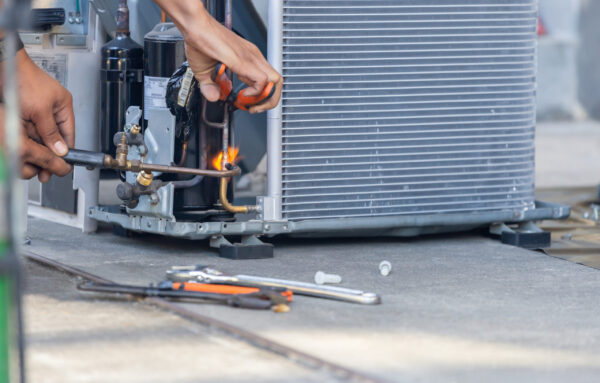
Heat pumps are an increasingly common way of heating and cooling the home. However, since they’re still a newer form of technology, many people don’t understand how they work. Especially if you’re a new homeowner, it can take a little time to get used to heat pumps. Here are some important things to know about this type of HVAC system.
1. They’re Incredibly Energy Efficient
The most important thing to know is the reason why so many people choose heat pumps. Heat pumps are increasingly popular because they use less energy to heat your home. Instead of generating electrical heat from scratch, they simply move heat from one place to another. This ends up requiring less electricity overall. Customers who install heat pumps usually end up reducing their heating bills by 20% to 40% each year.
2. You Can Cool and Heat Your Home With a Heat Pump
Despite what the name says, a heat pump is more than just a heater. Heat pumps transfer heat, so they can actually be used to cool or warm a house. When it’s winter, your heat pump collects warmth outside and pushes it into your home. In the summer, it takes all excess heat inside your house and vents it outdoors.
3. Heat Pumps Come in Multiple Styles
Heat pumps actually include several different types of HVAC systems. When most people discuss heat pumps, what they’re really talking about is air-to-air pumps that transfer heat from your inside air to your outdoor air. There are also geothermal heat pumps and water-source heat pumps. These work by conducting heat from your inside air to either a nearby natural source of water or a system of coils underneath the ground. They’re pricier to install but can be even more efficient.
4. They Can Warm Your Water Too
A heat pump can actually work alongside your water heater system. If you get a desuperheater coil installed, it can collect excess heat and transfer it to a water tank. The extra heat helps to preheat your water, so your water heater has to use less energy. This helps you save even more money on your energy bills.
5. You Have Fewer Maintenance Tasks When You Have a Heat Pump
Because a heat pump both heats and cools your home, it cuts back on maintenance. You only have to service one machine instead of two, and you only have to change filters in one system. This tends to make heat pumps less effort than having a separate air conditioner and furnace.
6. Modern Heat Pumps Use Less Auxiliary Heat
Many people assume heat pumps have to burn extra energy on auxiliary heating any time it gets chilly outside. While this is true of old systems, the reality is that modern heat pumps are incredibly energy efficient. Since they’re so good at transferring heat indoors, you almost never need to run the auxiliary heating systems.
7. Heat Pumps Also Dehumidify Homes
Heat pumps do more than just warm or cool your home. They also help to pull excess moisture out of the air. Heat pumps actually dehumidify a little better than most traditional air conditioners, so they’re ideal if you’re bothered by the humidity in your home.
8. You Can Use Them With or Without Ducts
Heat pumps are very versatile. They work with traditional ducted systems, but you can also install versions that are ductless. Ductless systems can be useful if you want a zoned system or prefer a less intrusive installation process. The right choice really just depends on your home and your HVAC needs.
9. They Work in All Sorts of Temperatures
Heat pumps do work a little differently depending on what temperatures are like outdoors. When it is chillier, there is less residual heat for your heat pump to collect. However, this doesn’t mean heat pumps are useless in the dead of winter. Heat pumps work well in any temperature above 25 degrees Fahrenheit.
If you have or are considering getting a heat pump, Underwood AC LLC is happy to provide you with more information. Our team can explain how they work and help you learn about troubleshooting the system. We also help Davenport residents with a variety of other HVAC services including installation, maintenance, and repairs. Call Underwood AC LLC today to learn more.

